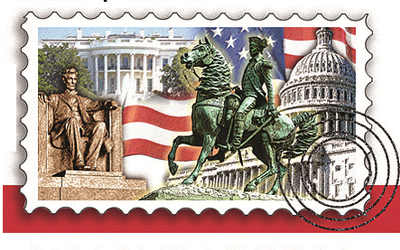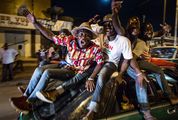LETTER FROM WASHINGTON: ‘Barbarians’ help state keep populace in check
by Simon Barber,
2016-03-24 05:46:08.0
WHAT is going to happen to us without barbarians? They were for us a kind of solution."
So ends Constantin Cavafy’s poem, Waiting for the Barbarians. These lines came back to me as President Barack Obama spoke on Tuesday in Havana’s Grand Theatre. "I have come here to extend the hand of friendship to the Cuban people."
What happens to the revolution, I wondered, without an immense and ever-looming external enemy to give meaning to the diet of rice and beans and take home pay of $20 a month that are most Cubans’ lot.
For half a century, Washington has been Castroism’s enabler. That is not to say Castroism was all bad. Militarily and politically, Fidel Castro outsmarted PW Botha’s generals in southern Angola in 1987-88. Had they only had to contend with Fapla and its cloddish (as he saw them) Russian advisers, Cuito Cuanavale would not have been enshrined in the liberation narrative as apartheid’s Stalingrad.
The fact remains that absent the combined kindness and unkindness of strangers, Castro’s revolution would have been very hard to sustain for more than a few years, energetic repression notwithstanding. The dogged hostility of the US, no less than subsidies from the Soviet Union and latterly Chavista Venezuela, was essential to the regime’s survival through hard times. And hard times they nearly always have been, not because of the US embargo (to which no one else ever fully subscribed), but because, without some foreigner to pay the bills, Castro’s economics never worked.
As African National Congress secretary-general Gwede Mantashe recently reminded us, there’s nothing like whipping up a bit of nationalist paranoia when you start to lose confidence in the people’s consent to your historic right to rule in perpetuity.
At least Fidel had something real to be afraid of. Operation Mongoose, initially run by none other than Bobby "ripples of hope" Kennedy, the president’s brother, was meant to kill him. El Jefe — the Chief — was also lucky that the Cubans who fled his dispensation congregated in US states, Florida primarily, but also New Jersey, and that swung presidential elections. As a result, exiles bent on his destruction effectively Gupta-ed US Cuba policy. Let any administration merely hint at a desire for normalisation prior to regime change, and between them Havana and the exiles would find some way to goad each other into a provocation, leading to tightened US sanctions that achieved nothing beyond feeding the Castro propaganda mill.
As Castro aged, so did the first generation of exiles. Its successful sons and daughters, as they grew wealthy in the US in their own right, began to realise the embargo was counterproductive. By 2014, the share of Cuban-Americans in favour of maintaining it had fallen to less than half from nearly 90% in 1991. The past two presidential elections showed it was possible for a Democrat to win solid majorities in south Florida without ruling out constructive engagement with Havana.
In 2012, I had the good fortune to attend a private dinner with several of the wealthiest Cuban business leaders in the Miami area. They wanted to explore ways in which SA, by virtue both of its own experience and its close ties with Havana, might help to facilitate a process of reconciliation.
They believed Fidel’s replacement by his brother Raúl represented an opportunity that needed to be tested. They were worried about bittereinders on both sides messing things up, and they knew to prevent that happening, the parties might have to say and do things publicly to conceal their real intentions. When that happened, it was vital they understood each other.
Quite what role SA played thereafter I do not know, other, obviously, than providing a very suitable occasion — Nelson Mandela’s funeral — for Obama to greet his Cuban counterpart with all the world watching.
That helped set in motion the sequence of events that culminated in this week’s genuinely historic visit.
Where to now? Raúl Castro, 84, is scheduled to step down in 2018, but it is still beyond imagining the Cuban Communist Party will then allow itself to be voted out of power. Rather, it will most likely try to follow the China model, using the prosperity generated by economic liberalisation to maintain its ruthless hold on power.
If that fails, maybe barbarians will again come to the party’s rescue. Obama has done about as much as he can to ease restrictions on trade and travel by executive order. Hope for the hardliners lives on for now in the Republican-controlled Congress.
• Barber is a freelance journalist

Letter from Washington
WHAT is going to happen to us without barbarians? They were for us a kind of solution."
So ends Constantin Cavafy’s poem, Waiting for the Barbarians. These lines came back to me as President Barack Obama spoke on Tuesday in Havana’s Grand Theatre. "I have come here to extend the hand of friendship to the Cuban people."
What happens to the revolution, I wondered, without an immense and ever-looming external enemy to give meaning to the diet of rice and beans and take home pay of $20 a month that are most Cubans’ lot.
For half a century, Washington has been Castroism’s enabler. That is not to say Castroism was all bad. Militarily and politically, Fidel Castro outsmarted PW Botha’s generals in southern Angola in 1987-88. Had they only had to contend with Fapla and its cloddish (as he saw them) Russian advisers, Cuito Cuanavale would not have been enshrined in the liberation narrative as apartheid’s Stalingrad.
The fact remains that absent the combined kindness and unkindness of strangers, Castro’s revolution would have been very hard to sustain for more than a few years, energetic repression notwithstanding. The dogged hostility of the US, no less than subsidies from the Soviet Union and latterly Chavista Venezuela, was essential to the regime’s survival through hard times. And hard times they nearly always have been, not because of the US embargo (to which no one else ever fully subscribed), but because, without some foreigner to pay the bills, Castro’s economics never worked.
As African National Congress secretary-general Gwede Mantashe recently reminded us, there’s nothing like whipping up a bit of nationalist paranoia when you start to lose confidence in the people’s consent to your historic right to rule in perpetuity.
At least Fidel had something real to be afraid of. Operation Mongoose, initially run by none other than Bobby "ripples of hope" Kennedy, the president’s brother, was meant to kill him. El Jefe — the Chief — was also lucky that the Cubans who fled his dispensation congregated in US states, Florida primarily, but also New Jersey, and that swung presidential elections. As a result, exiles bent on his destruction effectively Gupta-ed US Cuba policy. Let any administration merely hint at a desire for normalisation prior to regime change, and between them Havana and the exiles would find some way to goad each other into a provocation, leading to tightened US sanctions that achieved nothing beyond feeding the Castro propaganda mill.
As Castro aged, so did the first generation of exiles. Its successful sons and daughters, as they grew wealthy in the US in their own right, began to realise the embargo was counterproductive. By 2014, the share of Cuban-Americans in favour of maintaining it had fallen to less than half from nearly 90% in 1991. The past two presidential elections showed it was possible for a Democrat to win solid majorities in south Florida without ruling out constructive engagement with Havana.
In 2012, I had the good fortune to attend a private dinner with several of the wealthiest Cuban business leaders in the Miami area. They wanted to explore ways in which SA, by virtue both of its own experience and its close ties with Havana, might help to facilitate a process of reconciliation.
They believed Fidel’s replacement by his brother Raúl represented an opportunity that needed to be tested. They were worried about bittereinders on both sides messing things up, and they knew to prevent that happening, the parties might have to say and do things publicly to conceal their real intentions. When that happened, it was vital they understood each other.
Quite what role SA played thereafter I do not know, other, obviously, than providing a very suitable occasion — Nelson Mandela’s funeral — for Obama to greet his Cuban counterpart with all the world watching.
That helped set in motion the sequence of events that culminated in this week’s genuinely historic visit.
Where to now? Raúl Castro, 84, is scheduled to step down in 2018, but it is still beyond imagining the Cuban Communist Party will then allow itself to be voted out of power. Rather, it will most likely try to follow the China model, using the prosperity generated by economic liberalisation to maintain its ruthless hold on power.
If that fails, maybe barbarians will again come to the party’s rescue. Obama has done about as much as he can to ease restrictions on trade and travel by executive order. Hope for the hardliners lives on for now in the Republican-controlled Congress.
• Barber is a freelance journalist



















Change: -0.47%
Change: -0.57%
Change: -1.76%
Change: -0.34%
Change: 0.02%
Data supplied by Profile Data
Change: -1.49%
Change: 0.08%
Change: -0.47%
Change: 0.00%
Change: -0.04%
Data supplied by Profile Data
Change: -0.34%
Change: 0.03%
Change: -0.10%
Change: -0.22%
Change: -0.69%
Data supplied by Profile Data
Change: -0.28%
Change: -1.15%
Change: -0.07%
Change: -1.21%
Change: -0.22%
Data supplied by Profile Data